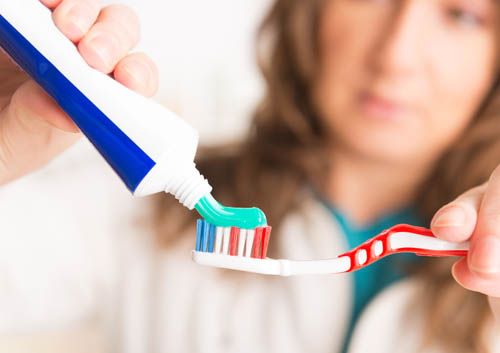What type of toothpaste is right for you?
August 30th, 2023

Toothpaste no longer comes in simple choices of fluoride and fresh breath. Paste is not even the only option! You can choose gel forms and even some with ribbons of color and flavor. With so many varieties available, it may be difficult to know which features or combinations of ingredients are best for your mouth. Drs. Keith Hinnant, Peter Klein, Philip Brantly and our team are here to help!
Fluoride
The majority of all dental patients should use toothpaste with fluoride. Fluoride helps to strengthen the enamel on your teeth; it makes them stronger and more resistant to cavities. Even if you live in an area that adds fluoride to your drinking water, the fluoride protection in toothpaste is necessary.
Some individuals can have an allergic reaction to fluoride. Fluorosis can occur in children or adults that swallow too much toothpaste while brushing. If swallowing cannot be prevented, fluoride use should be reduced. The American Dental Association has updated guidelines that recommend fluoride be used as soon as the first teeth erupt in children. However, the amount should be minimal and swallowing should be prevented.
Sensitivity Protection
If your teeth are sensitive to temperatures, toothpaste with sensitivity protection can work wonders for your discomfort. Ingredients in these pastes or gels work to block the pathways to the nerves that react to hot or cold. Do not give up on this type of toothpaste after a few days; the full results may take a few weeks.
Plaque, Tartar, and Gingivitis Protection
Everyone has bacteria in his or her mouth, and this bacteria is normal. Unfortunately, some bacteria also cause plaque. If the plaque remains on your teeth, it hardens into tartar or calculus. Tartar is an almost cement-like substance that cannot be removed by brushing alone. When bacteria and tartar are left behind, the deposits will form under the gum line. This leads to gingivitis and gum disease.
Since there is a wide variety of toothpastes and ingredients for preventing tartar and gingivitis, ask Drs. Keith Hinnant, Peter Klein, Philip Brantly and our staff what the best choice is for your teeth. We can help you select the right combination of ingredients.
Whitening
White teeth are desirable, and manufacturers are heavily marketing whitening toothpastes. Most brands do not contain bleaching ingredients; they use abrasives to polish stains away. Unfortunately, too much abrasive use can be damaging to your teeth. If you’re interested in teeth whitening, our Goldsboro team can recommend a number of safe and effective options.
Feel free to ask Drs. Keith Hinnant, Peter Klein, Philip Brantly and our staff at Hinnant Family Dentistry about the best choice in toothpaste to meet your individual needs. Remember to look for the ADA approval seal on any toothpaste you are considering.





